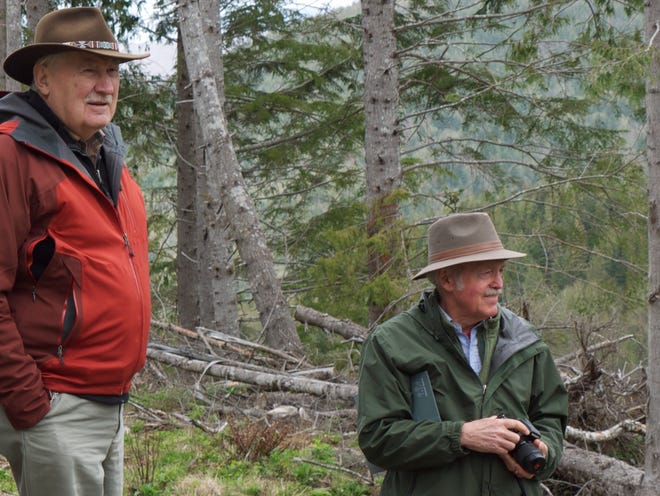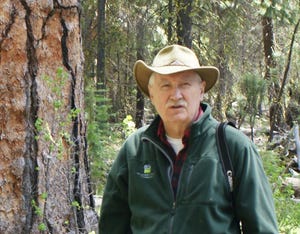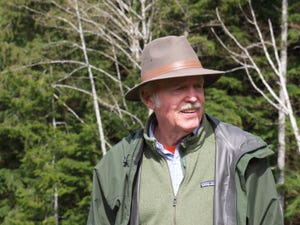Salvage does not aid ecological recovery of forests
There are many reasons why people may wish to salvage trees after wildfires like those that occurred in the western Cascades last September, including getting logs to the mill, recovering the economic value of the burned trees and reducing hazards to the public along roads and around houses and communities.
While these economic and social values are important, it is critical to understand that timber salvage will not contribute to the recovery of westside forests, but will instead interfere with natural recovery processes, over the short and long term.
Forests in the Douglas-fir region of western Oregon evolved under a regime of infrequent, intense disturbances and are well adapted for dealing with such phenomena. These forests have evolved with infrequent but high severity fire, such as occurred last summer. They have a natural ability to immediately mitigate wildfire effects and initiate the long-term recovery of their functional capabilities, including watershed protection and provision of wildlife habitat.

Salvage logging profoundly interferes with the natural recovery process in two ways:
- First, logging and road-building disturb the soil and damage the initial flush of plant regrowth in the forest, increasing the potential for soil and nutrient losses and adversely affecting water quality.
- Second, salvage logging removes the wildfire’s legacy of standing dead and down wood, which is fundamental to the recovery of the forest’s functional capabilities.
Scientists learned decades ago that the initial flush of plant regrowth is critically important in reducing nutrient and soil losses after severe disturbances. In western Oregon, that flush following wildfire comes almost exclusively from shrubs and herbs that can and do immediately sprout – not from coniferous trees, which must reproduce from seed. Salvage logging can severely damage that recovering vegetation and create areas of bare soil, which are subject to erosion.
Oregon’s 2020 wildfire season:A new level of destruction. It could be just the beginning
The standing dead and down wood created by intense disturbances such as wildfire or wind is essential to the ecological recovery of disrupted forest and aquatic ecosystems. Where most trees are killed, such as the September 2020 wildfires, this pulse of dead wood represents all the large dead wood that will be available to the ecosystem for most of the next century.

These snags and logs are critical as habitat for an immense array of wildlife, including birds, insects, mammals, salamanders and reptiles, all of which are elements of larger food webs. This wood also represents an immense long-term source of energy and nutrients – and of sequestered carbon. In streams, the logs are critical structures important in maintaining stream productivity, water quality and fisheries.
Reservoir forecast:Willamette reservoirs project low water amid dry spring, impacting Detroit, Fern Ridge
Where management goals emphasize restoring diverse forest ecosystems with a full array of functional capabilities, natural recovery is the surest way for them to regain their ecological integrity. Salvage logging combined with dense commercial tree planting results in artificial ecosystems that lack most of the features that the public wants in our forests.

In the wake of the 2020 wildfires, the best approach to ecological recovery is, literally, to let nature take its course.
Jerry Franklin, Issaqua, Washington, and Norm Johnson, Adair Village, Oregon, are retired forestry professors from the University of Washington and Oregon State University, respectively. They have worked on forest policy problems for many years, including helping to develop the Northwest Forest Plan.They recently published a textbook entitled “Ecological Forest Management” with the co-author Debora Johnson. You may reach Jerry Franklin at jff@uw.edu and Johnson at norm.johnson@oregonstate.edu

